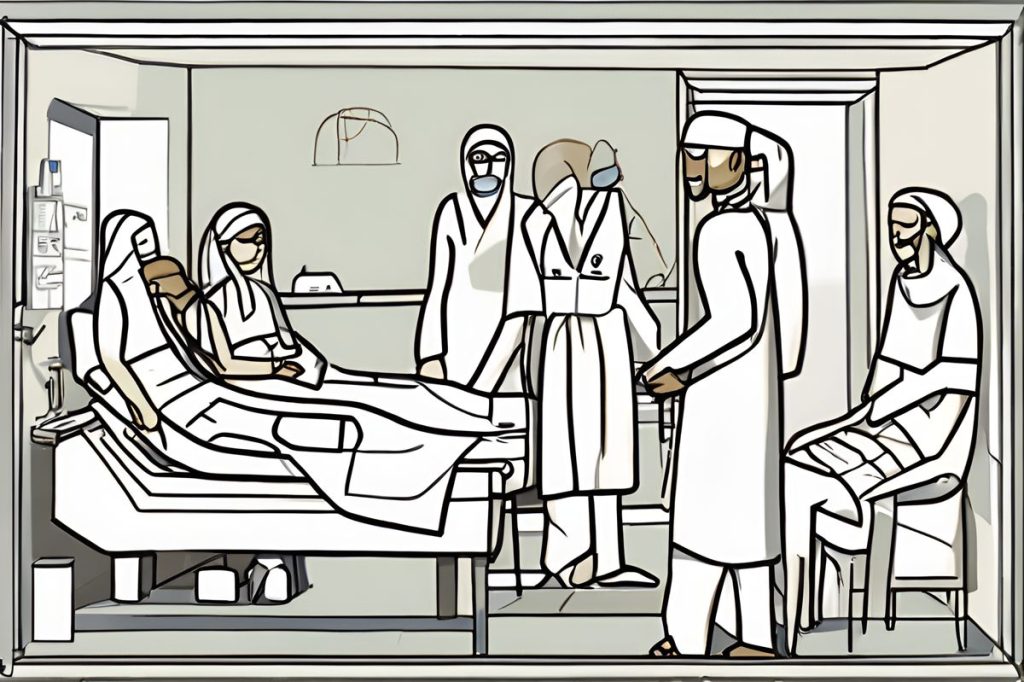Approximately 2,500 people in Cyprus are battling Multiple Sclerosis (MS), with a strong support system in place to aid in their fight. The country offers early diagnosis, personalized treatment plans, and advanced therapies, collaborating with institutions such as the Ministry of Health and patient associations to improve the lives of those living with MS.
How many people have MS in Cyprus and what support is available for them?
In Cyprus, approximately 2,500 people are living with Multiple Sclerosis (MS). The country offers a robust support system including early diagnosis, personalized treatment plans, advanced immunomodulatory therapies, and a collaborative healthcare infrastructure involving the Ministry of Health, the Institute of Neurology and Genetics, and patient associations to enhance the quality of life for MS patients.
Understanding Multiple Sclerosis
Around 2,500 people in Cyprus are currently living with multiple sclerosis (MS), a figure brought to light by the nurses association ahead of the internationally recognized World MS Day. This day is a beacon of hope and solidarity for those affected by this debilitating condition. With a variety of organizations including the Ministry of Health, the Institute of Neurology and Genetics, and patient associations, Cyprus is working tirelessly to provide a network of support, ensuring that MS patients receive early diagnoses and personalized treatment plans.
MS, a chronic inflammatory disease, wreaks havoc on the central nervous system. It damages the myelin sheath, the protective coating of nerve cells, disrupting communication between the brain and the body. This damage can lead to a host of unpredictable symptoms, ranging from mild numbness to severe paralysis. Understanding the complexities of MS is crucial for developing effective treatments that can alleviate the daily struggles faced by those diagnosed with the condition.
Demographics and Research
Most commonly diagnosed in young adults between the ages of 20 and 40, MS shows a higher prevalence in women, with a ratio showing three women to every man affected. While it is less common in children and older adults, MS does not discriminate, posing challenges across all demographics. The variability of this condition means that no two cases are identical, further complicating the efforts to provide standardized care.
Nevertheless, ongoing research offers a silver lining. The relentless pursuit of knowledge has led to groundbreaking immunomodulatory therapies that can slow disease progression. In Cyprus, health professionals are continuously educated on the latest research and treatment options. They contribute to large-scale studies that pave the way for innovative approaches, enhancing quality of life and offering a glimmer of hope to those standing against MS.
Living with MS in Cyprus
Life with MS can be fraught with uncertainty. However, Cyprus is committed to ensuring that those living with the disease can lead fulfilling lives. Modern treatments and comprehensive care strategies are the cornerstones of the support system here. By bolstering the healthcare infrastructure and fostering collaborations between various institutions and stakeholders, Cyprus is cultivating an environment where MS patients can access the necessary resources to manage their condition effectively.
Early detection and customized treatments are instrumental in maintaining functionality and independence. Cyprus’s dedication to enhancing its healthcare services reflects a broader commitment to improving the lives of all its citizens. With the right support, individuals with MS can navigate the challenges of the disease, finding strength in the community and the advanced medical care available on the island.
How many people have MS in Cyprus and what support is available for them?
In Cyprus, approximately 2,500 people are living with Multiple Sclerosis (MS). The country offers a robust support system including early diagnosis, personalized treatment plans, advanced immunomodulatory therapies, and a collaborative healthcare infrastructure involving the Ministry of Health, the Institute of Neurology and Genetics, and patient associations to enhance the quality of life for MS patients.
What is Multiple Sclerosis and how does it affect individuals?
Multiple Sclerosis (MS) is a chronic inflammatory disease that affects the central nervous system. It damages the myelin sheath, the protective coating of nerve cells, disrupting communication between the brain and the body. This damage can lead to a variety of symptoms, ranging from mild numbness to severe paralysis. It is crucial to understand the complexities of MS to develop effective treatments that can alleviate the daily struggles faced by those diagnosed with the condition.
How does MS impact different demographics and what research is being conducted?
MS is most commonly diagnosed in young adults between 20 and 40 years old, with a higher prevalence in women. While less common in children and older adults, MS can affect individuals across all demographics. Ongoing research has led to groundbreaking immunomodulatory therapies that can slow disease progression. Health professionals in Cyprus are continuously educated on the latest research and treatment options, contributing to innovative approaches that enhance quality of life for those with MS.
How does Cyprus support individuals living with MS and what resources are available?
Cyprus is committed to ensuring that those living with MS can lead fulfilling lives by providing modern treatments and comprehensive care strategies. The country focuses on early detection and customized treatments to maintain functionality and independence for individuals with MS. By fostering collaborations between various institutions and stakeholders, Cyprus creates an environment where MS patients can access necessary resources to effectively manage their condition.

